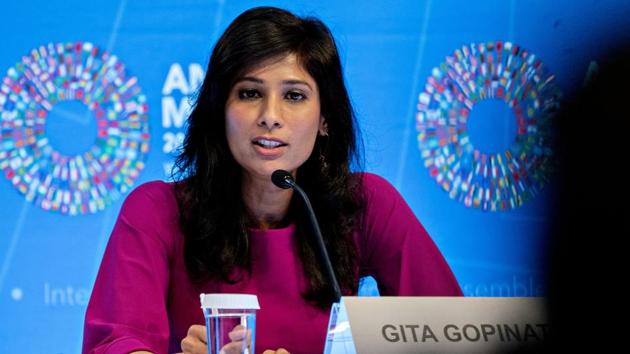India should avoid fiscal stimulus, opt for easing policy: IMF
Growth slump IMF calls for urgent policy actions to address the downturn.
The International Monetary Fund (IMF) has said that the Indian government should avoid a fiscal stimulus to boost the sagging economy and, instead, opt for an easier monetary policy.

“In the near-term, given the cyclical weakness of the economy, monetary policy should maintain an easing bias, at least until the projected recovery takes hold. Fiscal stimulus should be avoided, given (that the) fiscal space (is) at risk and revenue losses from the recent corporate income tax rate cut should be offset. In the event of a more severe economic slowdown than currently envisaged, any fiscal stimulus should be temporary, focusing on measures to boost near-term growth, such as immediate investment expensing or public infrastructure spending,” IMF said in its latest Article IV consultation report on India, released on Tuesday.
India’s economic growth had decelerated to a six-and-a-half-year low of 4.5% in the September quarter. The IMF, however, stuck to its growth projection of 6.1% for India in 2019-20.
Ahead of the World Economic Outlook Update which will be released next month, IMF chief economist Gita Gopinath has indicated that India’s growth projection is likely to be sharply revised downward.
IMF said the over-optimistic revenue targets for budget 2019-20 was further compounded by the recent cut in corporate income tax (CIT) rates, for which no offsetting revenue or expenditure measures were taken. This would lead to the government missing its fiscal deficit target by at least 50 basis points.
For 2019-20, the government had set a fiscal deficit target of 3.3% of gross domestic product (GDP).
“The softness of economic activity in the first five months of the fiscal year, along with the recent reduction in CIT rates makes achieving these (corporate and personal tax revenue) targets especially challenging. Budgeted GST revenue targets a still-optimistic, but somewhat lower growth rate (14.1%) and may garner support from administrative measures to improve GST compliance, including ‘nudge’ techniques,” it added.
IMF said personal income tax collections could be increased by ending exemptions, reducing the minimum threshold for taxpayers, and by raising contributions of top earners.
“On the latter, the recent surcharge on top earners is a positive step in this direction,” it added.
For the medium-term, it said a credible fiscal consolidation path is needed.
“To support the adoption of a necessary medium-term fiscal consolidation, driven by subsidy-spending rationalization and tax-base enhancing measures, revenue projections should be more realistic and fiscal transparency and budget coverage should be enhanced,” it added.






